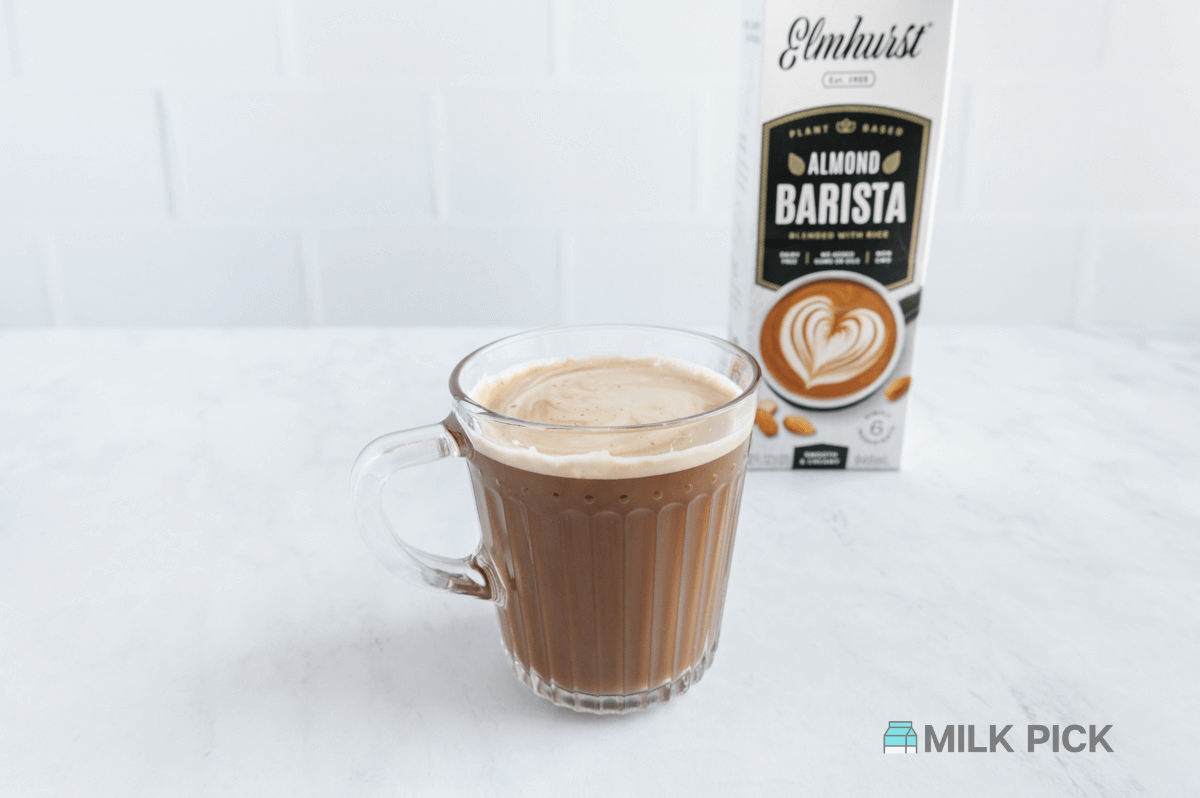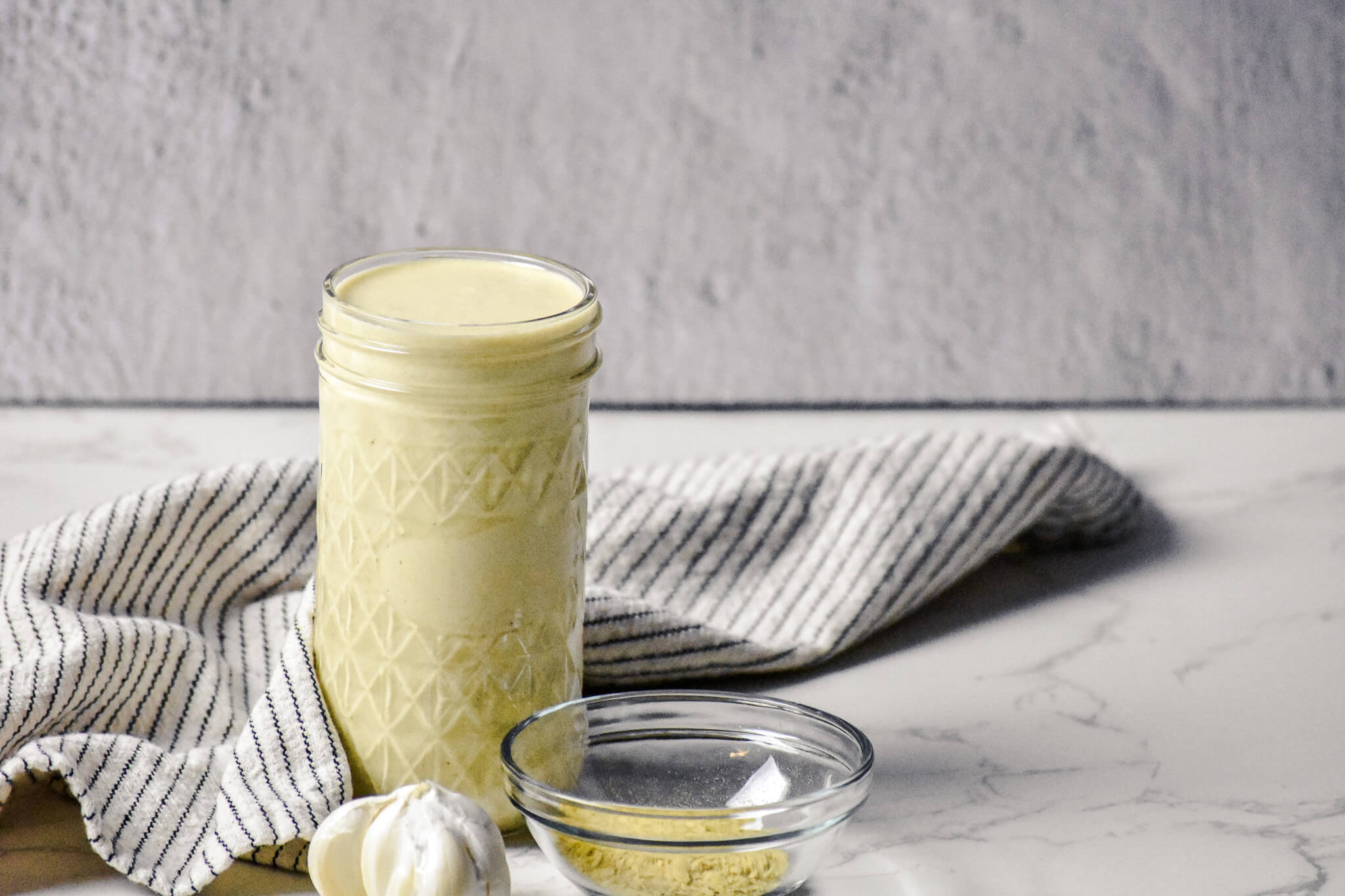Lactose, a type of sugar found in milk and dairy products, can cause big trouble for those with sensitivities.
While I don’t have lactose intolerance, I’ve been around people with the condition and know how much havoc lactose can wreak on the digestive system.
Whether it was the three-year-old who ate too much ice cream or a former co-worker who went ahead and got that latte with regular milk, I can safely say that having a tasty lactose-free alternative is super important for those who can’t process the sugar.
Thankfully, delicious non-dairy options like oat milk have become more popular over the last few years, making it easier for those with lactose sensitivities to enjoy certain foods without the disruptive consequences.
Here at Milk Pick, we want to help you decide if oat milk is right for you, whether you are lactose intolerant or just looking to cut back on dairy.
In this article, we’ll explain more about lactose and whether it’s found in oat milk - and help you choose an oat milk brand you can fully enjoy!
Quick Answer
Does oat milk have lactose?
No, oat milk is doesn't contain any lactose. Oat milk is made from oats and water and doesn't contain any dairy so it is lactose-free.
What is Lactose?
Okay, let’s start with the basics. What is lactose?
Lactose is a sugar found naturally in milk and other milk products like cream, butter, and yogurt (this includes cow milk, which has about 5 grams of lactose per 100 ml).
Lactose is made of two smaller sugar molecules called glucose and galactose.
As lactose travels through your digestive system, it’s broken down by your small intestine with a natural enzyme in our bodies called lactase.
It can be a beneficial compound in people whose bodies process lactose normally.
It can help increase calcium absorption and has a lower glycemic index (GI 46) than other sugars, such as glucose, which has a GI of 100.
This makes milk with lactose a good choice for those with diabetes or other conditions that require blood sugar monitoring.
It’s also a prebiotic, which means it promotes the growth of beneficial bacteria in the gut.
What Does it Mean to Be Lactose Intolerant?
If you’re lactose intolerant, it means that your body doesn’t produce enough lactase (the enzyme that breaks down lactose). This makes it hard for you to digest lactose-containing foods and drinks like milk, ice cream, cheese, and yogurt.
Lactose intolerance (or lactase deficiency) isn’t life-threatening but can be uncomfortable and disruptive.
Depending on the severity of your intolerance, you may start feeling bloated, have gas or diarrhea, or suffer from stomach cramps within 30 minutes to 2 hours after eating dairy.
Lactose intolerance has three main types - primary, secondary, and congenital.
Type of Lactose Intolerance | Description |
|---|---|
Primary lactose intolerance | The most common, and it means your body produces less of the enzyme as you get older. This is why you might start feeling bloated or “icky” after eating dairy as you age, even if you didn’t have issues when you were younger. |
Secondary lactose intolerance | Can be brought on by medical conditions like Crohn’s disease, celiac disease, or ulcerative colitis. It can also happen if you take antibiotics or undergo chemotherapy. |
Congenital intolerance | Rare but present from birth. Similarly, a condition called development lactase deficiency can occur, which is when an infant born prematurely lacks the enzyme to digest lactose due to an underdeveloped digestive system. |
Is There a Difference Between Lactose Intolerance and Dairy Allergy?
Short and sweet - yes.
Lactose intolerance means you can’t break down the sugars in milk.
A dairy allergy means you’re allergic to the proteins found in dairy.
That means the lactose content in your drink doesn’t matter - but it also means that you might be looking for a good dairy alternative for baking or cooking.
Is Lactose in Oat Milk?
Now to the main question, is there lactose in oat milk?
The answer is a resounding no; oat milk does not contain lactose.
Even though it’s called milk, oat milk is not a traditional milk product.
It’s made by combining oats with water and sometimes adding emulsifiers and fortified nutrients.
Remember, lactose is a sugar naturally occurring in animal milk (cow, goat, and human!).
Since oat milk is made with oats, which do not have lactose, oat milk beverages are lactose-free.
In fact, oats are made of a different sugar called maltose, a natural sugar found in the whole oat bran.
During processing, most oat milk manufacturers break down this sugar with an enzyme called α-amylase (no relation to lactase), like we did in our video—How to Make Oat Milk (Better Than Oatly).
This gives oat milk a naturally sweet taste, making it a delicious substitute for dairy milk for people with lactose sensitivity, intolerance, or dairy allergy.
So, is Oat Milk Good for People With Lactose Intolerance?
Absolutely.
Along with other alternative milk options, like almond, cashew, or coconut, oat milk works great as a substitute for dairy milk.
As mentioned, I don’t have lactose intolerance, but I have discovered that as I’ve gotten older, too much dairy does affect me.
A few years ago, I started experimenting with dairy-free milk to see if I could move to a more plant-based lifestyle and get rid of the full, bloated feeling I got after having milk in my morning coffee.
I tried almond and cashew, but neither gave me the creamy non-nutty flavor I wanted.
When oat milk came on the scene, I decided to try that also.
For me, oat milk is the best of both worlds - it’s creamy and sweet like dairy, but it doesn’t contain the same compounds, like lactose, that were potentially causing my upset stomach.
While it can be high in sugar, about 16 grams (compared to almond milk’s 2-3 grams) per serving, it does contain some fiber.
For a lower-sugar option, we like Three Trees Oatmilk with Seeds. It only contains three grams of sugar and it's packed with protein as well.
Is Oat Milk a Good Substitute for Dairy Milk?
In my opinion, oat milk is one of the better alternative milk substitutes for dairy, especially if your body has issues with lactose.
I like to use it in the following ways to offer a sweet, dairy-free, lactose-free, and nut-free creaminess to these dishes:
In Cereal
I love using oat milk in cereal. I’ve tried unsweetened, which is the most versatile, but I recommend vanilla (or chocolate if you’re feeling adventurous) for a sweet cereal.
Malk oat milk has both varieties - Vanilla Oat Malk and Chocolate Oat Milk, offering complimentary flavors for your favorite cereal.
Coffee
I’m definitely a coffee and tea lover, so using oat milk in these drinks has helped me cut down on the too-rich and calorie-heavy cream and half-and-half I used to use.
Whereas almond milk can be too thin (stick to a barista almond milk for coffee) and coconut milk can be too tropical, oat milk is a nice neutral for your morning latte or cappuccino.

I like the Califia Farms Extra Creamy Oatmilk or Willa’s Barista Oat Milk to mimic dairy.
Smoothies
Personally, I love a good smoothie.
Oat milk works wonderfully as a creamy base for your favorite smoothie recipe and provides a bit more fiber than other plant milk.
Any kind of oat milk will do, but I like to base it on the smoothie I’m making.
For instance, chocolate oat milk is awesome for a more desert-like smoothie, while vanilla or unsweetened, such as Elmhurst Unsweetened Oat Milk, is great for dairy-free fruit smoothies.
Baking and Cooking
Generally, you can use oat milk in many of the same baking and cooking applications as dairy milk.
For example, you can use it as a lactose-free substitute for soups and sauces (such as alfredo) or vegan yogurts or cheese.

When baking, you can also use it for quiches, muffins, cookies, or cakes.
If You Aren’t Lactose Intolerant, Should You Still Drink Oat Milk?
Right, so if you aren’t lactose intolerant, should you still drink oat milk?
Of course!
Oat milk is an excellent alternative milk option to try, especially if you are not a fan of almond or coconut flavors.
It’s also great if you want to stay away from the even higher carbohydrate amounts in rice milk or can’t deal with the sometimes chalky taste of pea milk.
But, some people may want to avoid oat milk and find a different dairy-free alternative instead:
Oat Allergies
If you have oat allergies, you should avoid oat milk. It’s made from oats and water, making it unsuitable for your system.

Celiac Disease Or Gluten Sensitivity
if you have celiac disease, be careful when choosing oat milk.
Oats are often processed in the same facilities as grains that contain gluten. This means there can be cross-contamination, which could cause your symptoms to flare up.
There are several gluten-free products, such as Chobani Oatmilk Original, you can enjoy. Just make sure to read the label carefully.
Diabetes Or Low-Carb Needs
As mentioned, oat milk can be high in carbs due to its natural maltose sugars.
Some brands are even sweetened with additional sugars, such as cane sugar or maple syrup.
Although you can always choose a lower-carb oat milk product or build it into a balanced diet, you may opt for something like Three Trees Original Almond Milk with 3 grams of carbs per serving.
Related: Is Oat Milk Good for Diabetics?
Enjoy Oat Milk Without Lactose!
The bottom line is that oat milk is a dairy-free, lactose-free beverage suitable for those with lactose sensitivities.
Whether you have had lactose intolerance from a young age or have noticed milk products don’t sit right with your digestive system as you’ve gotten older, oat milk is a great option to replace dairy.
With tons of great brands on the market offering unsweetened vanilla, chocolate, and barista blends, you can find an oat milk product that works perfectly for you.
Search our Milk Pick database to browse tons of oat milks by brand, flavor, storage type, or features, or read more about oat milk in our blog.
